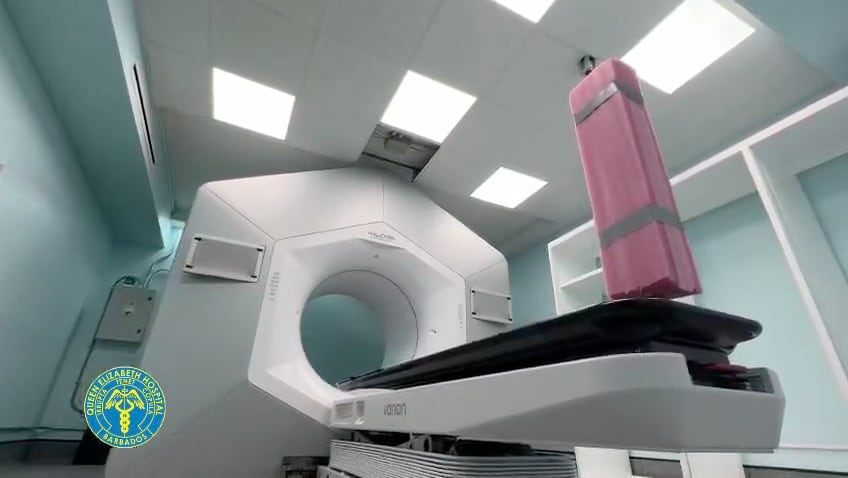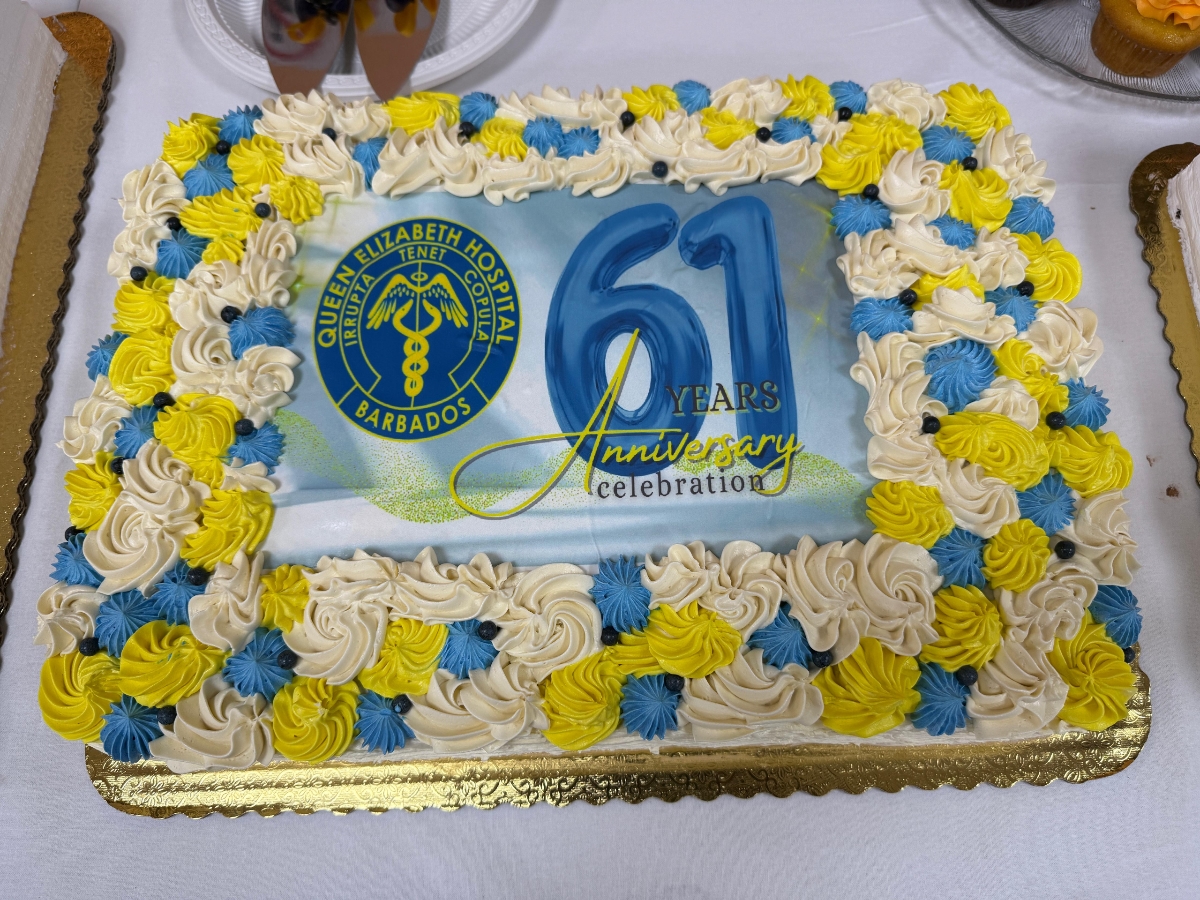https://www.youtube.com/watch?v=Vy4kzrnSlIE The Queen Elizabeth Hospital has reached a significant milestone in the advancement of cancer…
QEH Introduces Corneal Cross-Linking To Help Halt Keratoconus

The Queen Elizabeth Hospital (QEH) has introduced corneal cross-linking—a sight-preserving procedure that halts the progression of keratoconus, a condition that often begins in adolescence and can lead to severe vision loss if untreated.
This new service has been made possible through the generosity of the Sandy Lane Charitable Trust, which donated a corneal cross-linking machine and funded essential consumables, including riboflavin eye drops, a critical component of the procedure. The QEH also acknowledges the partnership of Keratoconus Barbados, which has committed to supporting programme sustainability through ongoing provision of riboflavin supplies.
About keratoconus and cross-linking
Keratoconus causes the cornea—the eye’s clear front surface—to thin and bulge, distorting vision and, in advanced cases, leading to scarring or the need for corneal transplantation. Corneal cross-linking is a minimally invasive technique that strengthens corneal tissue to stop the disease from worsening and to help preserve sight.
Major step forward for patients and families
For Barbadians living with keratoconus, access to corneal cross-linking at the QEH represents a major step forward. Patients can now receive treatment locally rather than seeking care overseas, reducing costs and increasing accessibility. Early intervention can prevent disease progression and limit the likelihood of needing more complex procedures such as corneal transplantation. With the equipment in place and supplies supported through donor and community partnerships, the QEH is working to ensure that this service remains available on a sustainable basis for those who need it most.
The QEH thanks the Sandy Lane Charitable Trust for its strategic investment in children’s health and education, and Keratoconus Barbados for advocacy and material support. Their contributions help ensure that young Barbadians who need cross-linking can access it regardless of financial circumstances.
Patients who have been diagnosed with keratoconus—or who have concerns about progressive changes in vision—should consult their ophthalmologist or contact the QEH Ophthalmology team for guidance on assessment and eligibility for cross-linking.
The QEH remains committed to expanding advanced clinical services through strong partnerships, improving access to care, and protecting the vision and futures of Barbadian children and young adults.



